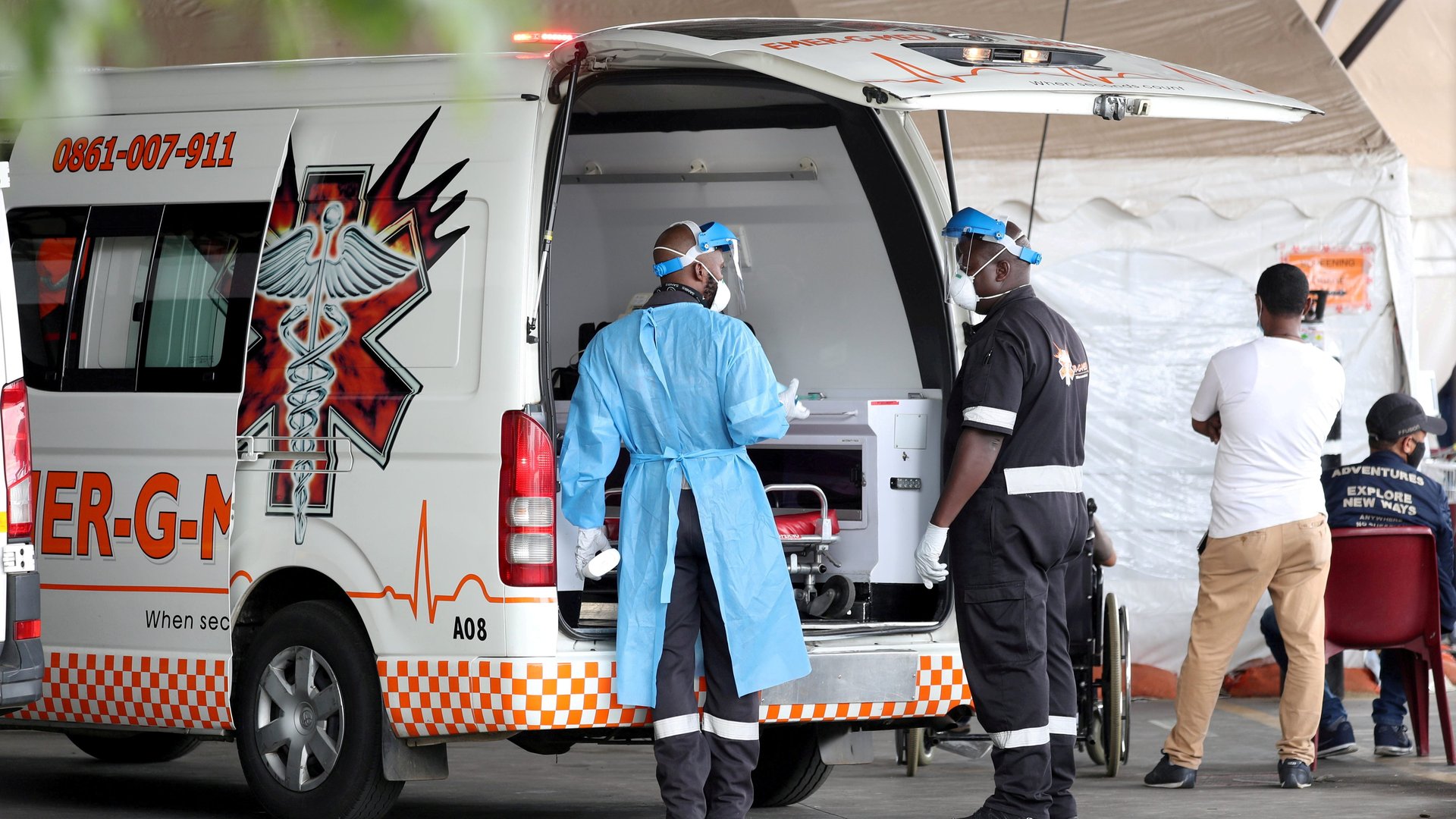Africa’s next wave of Covid-19 could be deadlier than the last
With a second wave of Covid-19 across Africa appearing to ebb, public health officials are calling on countries to move with urgency to protect health-care workers and others most at risk from the coronavirus before the next surge arrives.


With a second wave of Covid-19 across Africa appearing to ebb, public health officials are calling on countries to move with urgency to protect health-care workers and others most at risk from the coronavirus before the next surge arrives.
Compared with the first wave of the pandemic in July last year, when about 2.2% of Covid-19 cases resulted in death, Africa’s fatality rate from the illness in the past 28 days rose to 3.7%, the World Health Organization said on Thursday.
In early reports from 21 of the African continent’s 54 countries, two-thirds say that their intensive-care units have been overwhelmed during the second wave of the pandemic, while 24% report burnout among health-care workers, according to the WHO. Fifteen of those countries say they’re still struggling to produce enough oxygen needed to treat severely ill patients.
Sunday will mark one year since the first reported case of Covid-19 on the continent, which since then has recorded 3.7 million cases. The continent, which accounts for 3.5% of worldwide cases and 4% of global deaths, is on track to pass 100,000 deaths in the coming week.
“The increasing deaths from Covid-19 are a tragic warning that health workers and health systems in many countries in Africa are dangerously overstretched,” said Matshidiso Moeti, the WHO’s regional director for Africa. “This grim milestone must refocus everyone on stamping out the virus.”
The exigency comes as countries confront organizing vaccine drives with limited supply, as well as the emergence of new strains of the coronavirus that have raised questions about the effectiveness of vaccines. One variant known as B.1.351, which emerged in South Africa in December, now accounts for nearly 90% of new infections in the country.
South Africa this week halted plans to vaccinate 1.5 million frontline health-care workers with a vaccine developed by Oxford University and AstraZeneca, based on preliminary evidence that the shot offers only minimal protection against mild to moderate infection from the B.1.351 variant. The variant has now been reported in 32 countries, including eight in Africa.
The government said it would move forward with plans to vaccinate those workers with a Covid-19 vaccine developed by Johnson & Johnson. The jab from J&J has shown in clinical trials to provide close to 90% protection in preventing hospitalizations and death from the variant. A Covid-19 vaccine developed by Pfizer appears to protect against severe illness from it as well.
Clinical trials of the AstraZeneca vaccine in the UK and Brazil suggest that it, too, may offer similar protection. Though the trial encompassed South Africa, it studied a relatively small number of young participants there who were not at risk of severe Covid-19. The trial also ended in early December, before the B.1.351 variant had spread widely. Scientists are now studying whether the vaccine protects against severe cases of Covid-19 triggered by the variant.
The vaccine’s design suggests that it may. Both the AstraZeneca and J&J vaccines employ a so-called viral vector, which increases the likelihood that the AstraZeneca vaccine will mirror the J&J shot’s efficacy in people at risk of being hospitalized or dying from Covid-19, according to Shabir Madhi, a professor of vaccinology at the University of the Witwatersrand and a principal investigator for the AstraZeneca trial.
“The AstraZeneca vaccine is very similar to the J&J vaccine,” Madhi explained this week, adding that studies have established the safety of both shots. “The immune response induced by these two vaccines are almost identical in terms of neutralizing antibodies, and both induce lymphocytes.”
The AstraZeneca vaccine could protect the roughly 25% of health-care workers in South Africa who have an underlying health condition that increases their risk of dying from Covid-19, Madhi noted. Those who received the AstraZeneca vaccine might later be able to receive a booster as vaccines from J&J and other manufacturers become available, he added.
A determination is expected soon. Until then, scientists guiding the WHO on coronavirus are recommending that countries use the AstraZeneca vaccine for health-care workers at high risk of contracting and transmitting Covid-19 even if variants are present in a country.
“While a vaccine that protects against all forms of Covid-19 is our biggest hope, preventing severe cases which overwhelm hospitals is crucial,” said Moeti. “If cases remain mostly mild and moderate and don’t require critical care, then we can save many lives.”